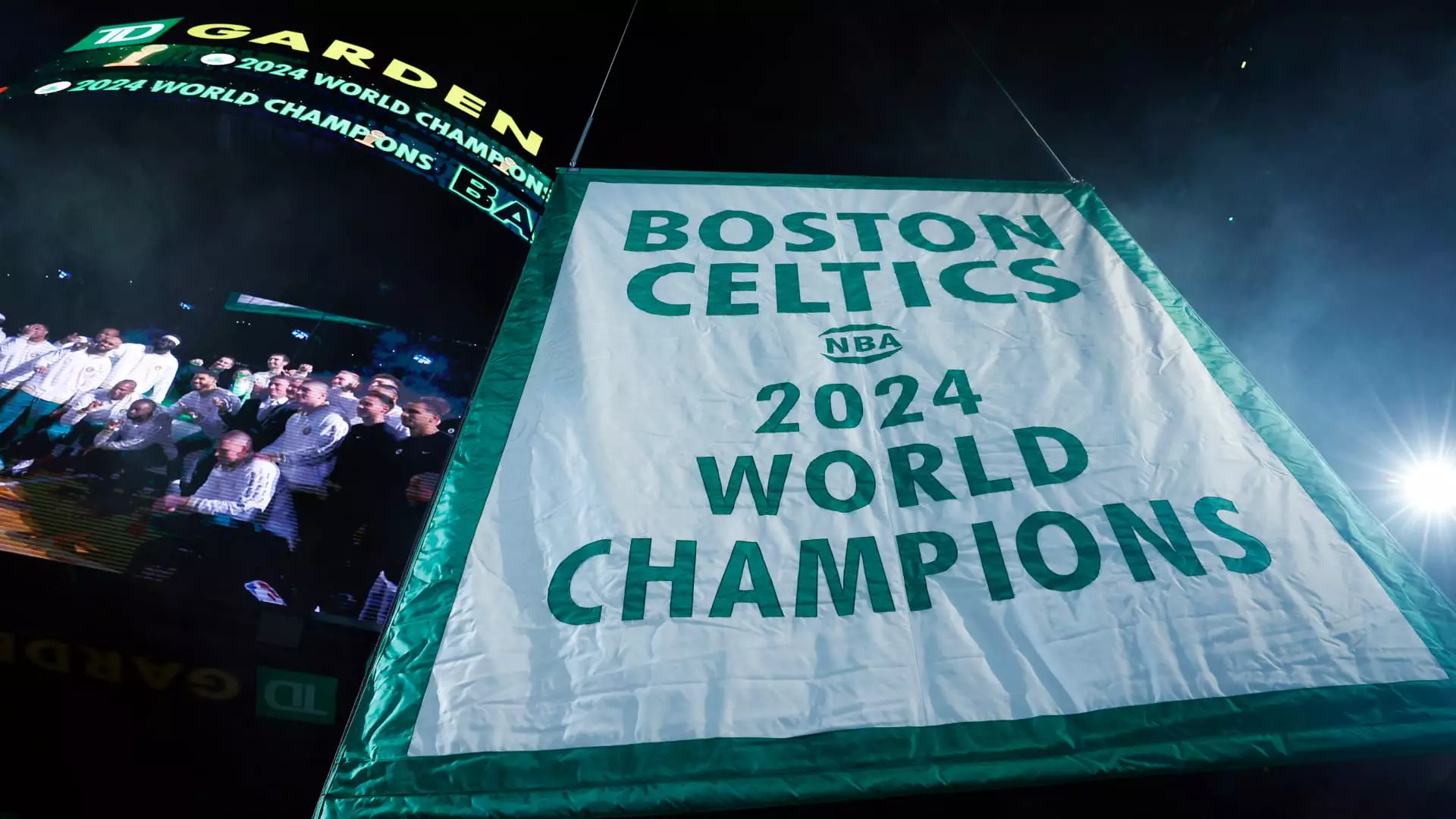The recent announcement regarding the sale of the Boston Celtics for an astonishing $6.1 billion raises eyebrows not just for its staggering figure, but for the implications of this ownership shuffle on the future dynamics of the NBA. Led by private equity mogul Bill Chisholm alongside Sixth Street and other local figures, this acquisition doesn’t merely represent a financial transaction; it epitomizes the growing trend of corporate investment overpowering community connection in professional sports.
Valued higher than the previous record set by the Washington Commanders, this transaction seems to underscore a monopolistic trend in sports ownership where financial muscle takes precedence over local spirit and tradition. The Celtics’ price tag showcases the NBA’s consistent ability to attract big money, but at what cost? Historically, franchises have been rooted in deep local loyalties, often passed down through generations. Yet, this sale indicates a shift that could prioritize financial gains over community identity.
The Questionable Role of Private Equity
As the Celtics transition into the hands of a private equity firm, one must question the ethics of such substantial external investment in what was once considered a bastion of cultural significance. Private equity firms are notorious for their sharp financial tactics aimed at maximizing profits, often at the expense of community values and employee welfare. Chisholm’s assertion of his love for the Celtics and Boston is heartwarming; however, this backdrop of corporate finance risks eclipsing the very ethos that has made the franchise beloved over the decades.
Frankly, it’s disconcerting to witness business executives essentially commodifying iconic sports teams, reducing their essence to mere assets on a balance sheet. The Boston Celtics are not simply a profitable investment—they’re an integral component of Northeast American culture. The dual role of Chisholm as a businessman while claiming to be a ‘die-hard Celtics fan’ raises a red flag regarding the potential conflicts in interest that could arise in decision-making processes.
Media Rights and the Inflationary Spiral
The breathtaking valuation of the Celtics also highlights another worrying trend: the soaring media rights payments that have inflated sports franchises to dizzying heights. The recently signed 11-year, $76 billion agreement between the NBA and major broadcasting entities speaks volumes about the lucrative nature of sports entertainment. While increased revenues signal positive growth, they also create an ownership landscape that increasingly becomes out of reach for individual buyers or family-run operations.
This trend could have long-term ramifications on how teams engage with their communities. With the growth of media-driven profits, there may be a danger of franchises crafting their identity primarily through global marketing strategies, rather than fostering genuine connections with their fan bases. Will future Celtics fans find themselves perpetually priced out of their own team’s affairs, witnessing their beloved franchise being homogenized into a worldwide branding machine?
The Echoes of Responsibility
Bill Chisholm’s proclamation of understanding his responsibilities as a team leader is certainly commendable. However, mere words won’t suffice; action is what truly counts. His role as the “Governor” of the Celtics puts him in a position of influence, but history suggests that many ownership groups have struggled to maintain the intricate balance between financial objectives and community engagement.
Maintaining the historical legacy of the Celtics while acquiring a new financial outlook is an uphill battle. Chisholm’s local ties may not shield him from the overarching financial pressures that come with such a massive investment. The stakes are high, notably because the Celtics are not just a sports team; they are part of Boston’s identity.
In a world increasingly driven by profit margins, the challenge will be ensuring that fans do not become spectators in their own narrative. If the Celtics can maintain their cultural relevance amidst the prevailing winds of corporate interests, they could very well prove to be a shining example of how to navigate this inflection point in sports history. Otherwise, we risk losing not just teams, but the community fabric that sports uniquely provides.


Leave a Reply